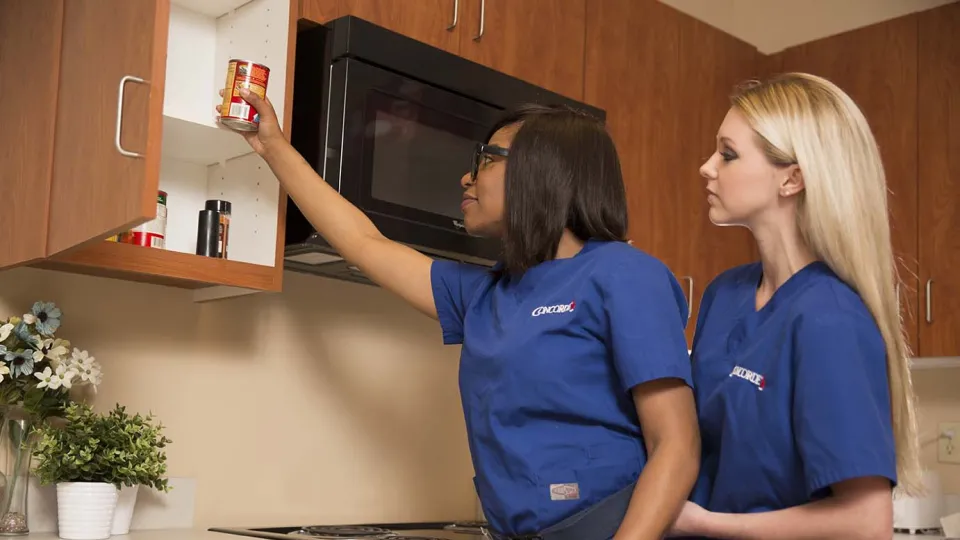
They perform many of the same basic responsibilities. But there are several key characteristics that set apart the occupational therapy assistant (OTA) from the occupational therapist. Same is true for the physical therapist assistant (PTA) and physical therapist.
There are subtle differences in clinical duties beyond the obvious differences such as pay grade and education requirements. We train occupational therapy assistants and physical therapist assistants to be successful, effective aides for their practitioners at Concorde. Many of our OTA and PTA graduates continue their education after being in the field for a time and become occupational therapy and physical therapy practitioners.
For any of our graduates thinking about one day advancing their careers, we thought we'd detail some of the key differences between being an aide versus being a practitioner.
Differences between being an occupational therapy assistant and occupational therapist
The first thing to consider is education, according to Brett Butler, Director of Concorde's Occupational Therapy Assistant Program in Miramar, FL. Occupational therapists spend four years working on a master's degree. An OTA can get an associate degree in as few as two years.
"Occupational therapists are involved in all of the evaluation and in the setting of goals for patients," Butler said. "Certified Occupational Therapy Assistants use the information from the evaluation and goal setting to execute a treatment plan."
"At most facilities, the certified OTA may have a greater caseload than the OT, due to the extra paperwork required of the Occupational Therapist. A COTA has to have their daily notes signed by an OT, whereas OTs do not have to have a cosigner."
Butler said both the OT and OTA serve physically, emotionally and mentally disabled people. They also assist children with developmental issues. Both the OT and OTA guide their clients to overcome and enhance their abilities to recover from their injuries or illness.
"Both work together to provide a better outcome for the clients they treat," Butler said.
Differences between being a physical therapist assistant and physical therapist
PTs and PTAs perform many of the same basic responsibilities such as assisting patients in stretches and exercises. But, some key characteristics set them apart, according to a blog on the All Allied Health Schools website.
PTs are mainly concerned with diagnosing patients and developing a rehabilitation program that is tailored to the patient's diagnosis. PTAs have more focus on preparing patients to be diagnosed and assisting in executing the rehabilitation plan.
Educational requirements also is a key distinction between the two fields. Postgraduate professional degrees are required to become a physical therapist. Many receive doctorate degrees. Most states require an associate degree from an accredited physical therapy program to become a PTA.
Both fields require licensure. To obtain a PTA license, most states require that you graduate from an accredited program and pass the National Physical Therapy Exam. Some states require a state-administered exam.
The best news is, both PTA and PT fields are in high demand. According to the Bureau of Labor Statistics, there's an expected 30 percent increase in expected job growth in PTA through 2026, 25 percent for PTs.
Take The Next Step Towards a Brighter Future
We have a Concorde representative ready to talk about what matters most to you. Get answers about start dates, curriculum, financial aid, scholarships and more!




